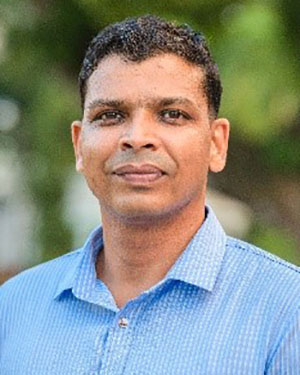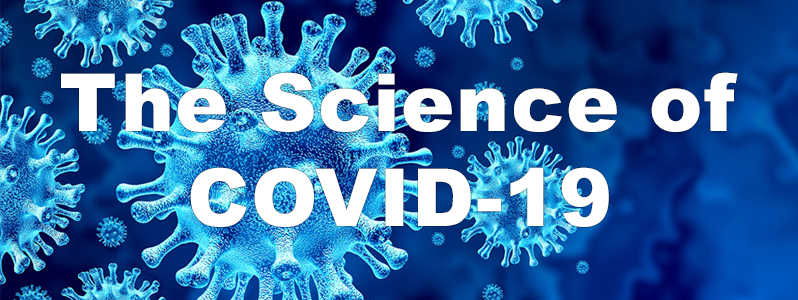Contributed By:
Dr. Tariq Jagnarine
Programme Manager
National AIDS Programme Secretariat

THE coronavirus disease (COVID-19) pandemic is a global health emergency. With the indiscriminate spread of COVID-19 globally, many vulnerable populations are experiencing negative consequences such as job loss, food insecurity, and inability to manage existing medical conditions and maintain preventive measures such as social distancing and wearing of personal preventative gear. Some of the most disadvantaged in the COVID-19 era are people living with HIV (PLHIV) along with other high risk groups.
There is great concern about the impact of COVID-19 among the nearly 40 million people living with HIV (PLHIV) worldwide. HIV treatment centres and care delivery systems have been adversely impacted in several countries during this pandemic but have created an opportunity for application of alternative strategies like multi-month prescription, decentralising HIV care in low-resource settings and introducing telemedicine in high-resource settings, retention in care programmes, direct observation of treatment which can be critical in mitigating shocks to healthcare systems in the future.
Like HIV/AIDS, coronavirus has a greater impact on people who are already marginalised. As a result, there is great concern as the pandemic spreads to poorer countries and those with higher HIV rates. According to the Centres for Disease Control and Prevention (CDC), 16.7% of COVID-19 patients in intensive care are immunocompromised with underlying health conditions and their chances of recovery are much lower.
GROUPS AT MOST RISK
For COVID-19, failure to adhere to physical distancing or hand washing recommendations constitute behaviours that increase risk for contracting COVID-19. People who are older in age or who have pre-existing conditions such as chronic respiratory disease, cardiovascular disease, hypertension, cancer and diabetes are at greater risk of being infected with coronavirus. It is well established that HIV disproportionately affects groups already marginalized, including racial/ethnic and sexual or gender minorities, as well as those living in poverty. It is quickly being recognised that COVID-19 also disproportionately affects minority groups, which is not surprising given existing health disparities and economic instability
HEALTH DISPARITIES
As with HIV, the COVID-19 pandemic reveals the systemic inadequacies that produce health disparities. There is a disproportionate burden on already vulnerable populations experiencing poverty and other systemic stressors. The United Nations 2020 report has indicated that increases in food costs and market stockpiling has had the most harmful impact on vulnerable communities, particularly those in low-income nations. Although vulnerable populations vary across nations, those with stigmatised or marginalised intersecting identities often experience the highest burden, including MSM, transgender women, people who inject drugs, commercial sex workers, young women, and youths (15–24), who account for a third of all new HIV infections. Furthermore, immigrants are at increased risk of infectious diseases, including both HIV and COVID-19, as are other people who are displaced.
Additionally, PLHIV in rural areas may experience additional barriers that inhibit access to care such as the lack of adequate technology to support telemedicine, lack of finances for transportation to attend clinics, and additional costs and complexity required to provide care during the current pandemic.
BIOLOGICAL IMPACT OF COVID-19 ON HIV TREATMENT
HIV persons whose disease is not well managed and whose condition is not virally suppressed along with comorbidities are placed at an increased risk for contracting and experiencing complications related to COVID-19, in addition to complications related to HIV disease progression. Given the lifelong prognosis of HIV, it is imperative for PLHIV to regularly visit their healthcare providers and adhere to treatment. PLHIV are also more likely to contract opportunistic infections e.g., pneumonia, tuberculosis, toxoplasmosis, etc., than those without compromised immune systems. They may experience delayed treatment due to COVID-19. This can occur due to overcrowding in an already taxed healthcare system. PLHIV who seek out urgent care may face an increased risk of contracting COVID-19 among other illnesses while in healthcare settings.
COVID-19 has taken a dramatic toll on HIV health care services. Lockdowns and associated changes have hampered the ability to deliver normal health care services to test new PLHIV, diagnosing positive cases, getting newly diagnosed positive persons on treatment, enrolment in clinics, continue adherence to treatment including dispensing of antiretroviral drugs (ARVs) and ultimately lower rates of viral suppression. Those associated changes include closing clinics, community health workers’ inability to visit PLHIV, the inability of support groups to meet, and the shortage of personal protective equipment for health providers. Evidence already shows an overall decline in persons coming to facilities for HIV testing, as well as, clinical care and treatment.




.png)









